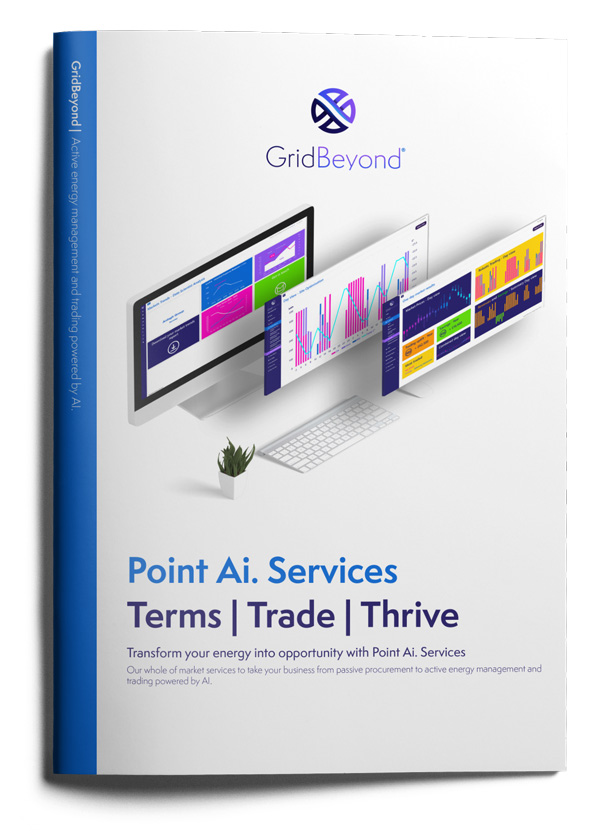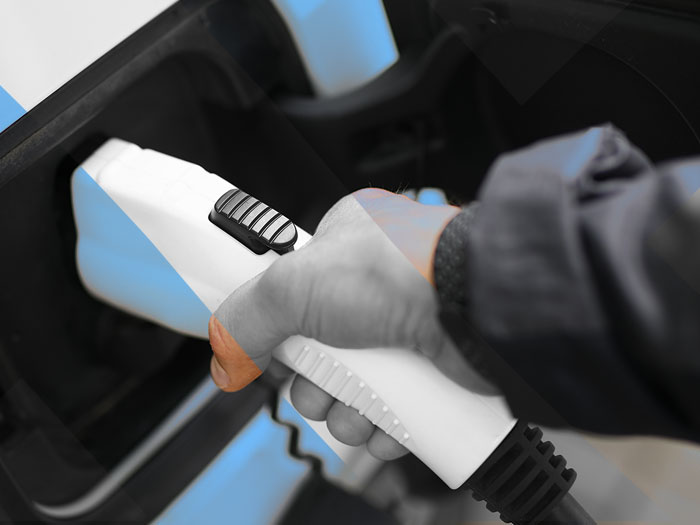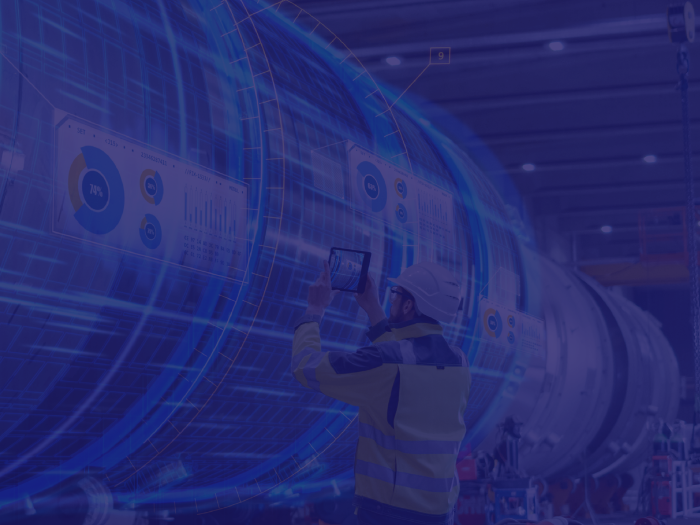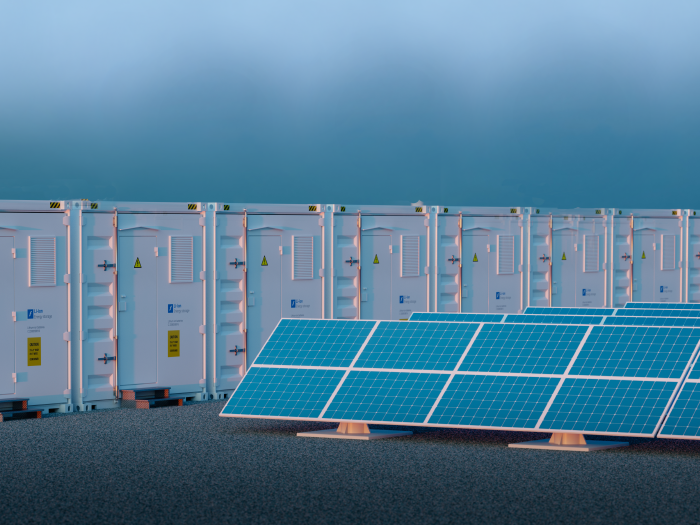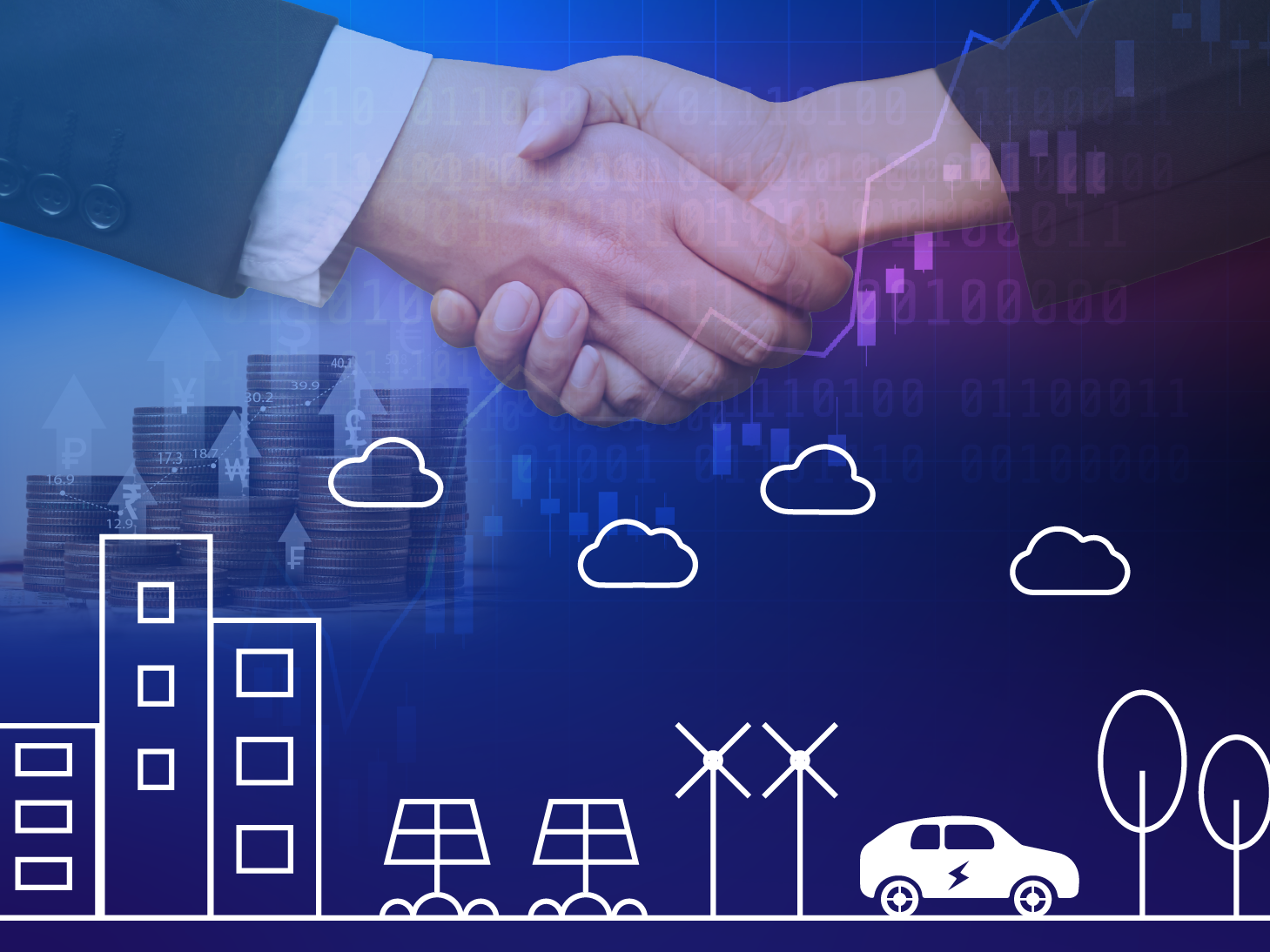News
better business decisions
Posted 2 years ago | 5 minute read

AI a key tool to accelerate the energy transition, says WEF
A new study, published by the World Economic Forum (WEF) has highlighted the role of artificial intelligence (AI) to “accelerate a more equitable energy”.
Written in collaboration with BloombergNEF and Deutsche Energie-Agentur, Harnessing Artificial Intelligence to Accelerate the Energy Transition outlines the current state of play of AI in the energy sector. It also identifies high-priority applications of AI and offers a road-map for the industry to maximise AI’s benefits.
As electrification increases across all industries and areas of our lives, the power sector is becoming the core pillar of the global energy supply. Ramping up the deployment of renewable energy will create a need for better forecasting, greater coordination, and more flexible consumption due to the intermittent nature of ’green’ energy. In addition, the low-carbon energy transition is driving the growth of distributed power generation, distributed storage, and advanced demand response capabilities.
AI could create substantial value for the global energy transition. It is estimated that between $92TN and $173TN investment in energy infrastructure will be needed between 2020 and 2050. BNEF’s scenario modelling shows that every 1% of additional flexibility, efficiency, or capacity in clean energy and low-carbon infrastructure systems creates $1.3TN in value between 2020 and 2050 due to reduced investment needs. AI could achieve this by enabling greater energy efficiency and more flexible demand.
Machine learning, one of the ways to apply AI, has the ability to identify patterns and insights in data, learn lessons accurately and improve system performance over time, predicting and modelling outcomes for complex situations. But navigating these opportunities presents huge strategic and operational challenges for energy-intensive sectors and energy systems themselves.
To address this, the report establishes a set of nine “AI for the energy transition principles” that aim to create a common understanding of what is needed to unlock the potential of AI across the sector, safely and responsibly.
The principles are split into three areas: those that govern AI use, those that will help design AI to be fit for purpose, and those that enable AI’s deployment and are aimed at helping to create collaborative industry and policy practices.
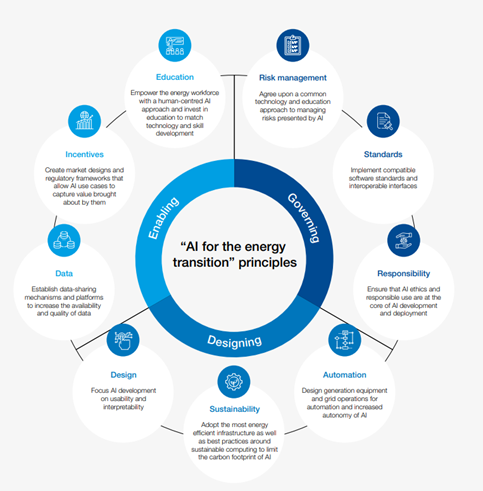
It called on the industry to approach AI governance in a “proactive and collaborative” way. As the management and operation of power systems becomes increasingly complex, grid regulators and operators must review the range of digital technologies to change the way grids are operated and take advantage of opportunities to move towards more decentralised architectures for grid access, operation and management decisions. This also includes moving away from the traditional command-and-control management approach (with a central system operator), towards technology-enabled decentralised decision-making. The transition will allow for faster decision-making and the automatic addition of smaller distributed assets to the grid (e.g. using blockchain, digital identity and smart contracts).
As cases of using AI technologies in the energy sector relate to small-scale distributed energy resources, these need to have unrestricted access to the energy markets and the corresponding value pools. Policy-makers and system operators should review existing market designs and create advanced opportunities that reward both variable low-carbon generation, as well as flexible demand. To do this, a truly level playing field for distributed generation needs to be created and regulatory hurdles removed.
Michael Phelan, CEO and Co-founder of GridBeyond, commented:
“Data, software and automation already play a significant role in the energy sector and the wider economy, but AI exceeds the capabilities of traditional software. In the energy sector, we are only seeing the beginning of what AI can do to move towards the low-emissions, ultra-efficient and interconnected systems that would meet the current and future needs
“While it is not a silver bullet to reach net zero, AI is an essential technology for the transition. It will help connect power, heat, mobility, and infrastructures across all sectors, support their optimisation and monitoring while increasing efficiencies of all processes and advancing decarbonisation.”
At GridBeyond, we use AI and advanced technology to change the way businesses procure and use energy. By putting control into their hands, we empower energy consumers to intelligently control and optimise their energy strategy and create new value on their side of the meter.
Our Point Ai. Services (Ai. Terms, Ai Trade and Ai. Thrive) make it easier than ever to reduce energy costs, cut carbon, improve the performance of your assets and gain new revenue streams while supporting the integration of green energy onto the grid.
With live data, analytics and automated insights, our Point Ai. Platform becomes the nerve centre for real-time optimisation of your energy strategy, helping you transform your energy into opportunity.
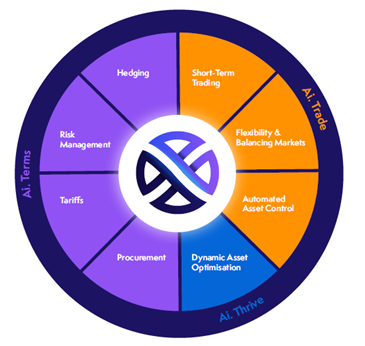
If you have any questions around the potential for your site, contact our team, or to learn more about the complimenting services offered by GridBeyond’s intelligent energy technology, our Point Ai. Services brochure.
